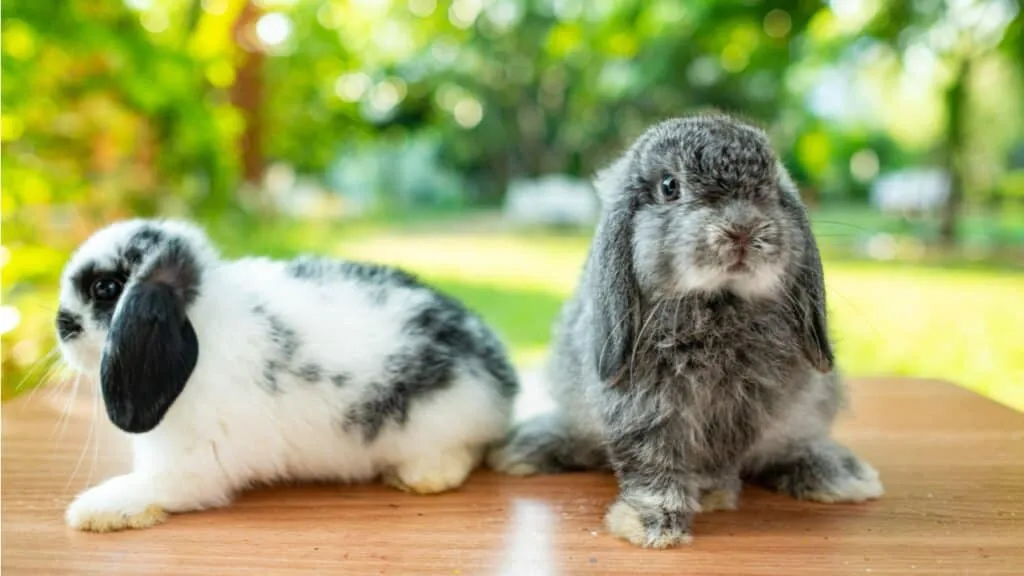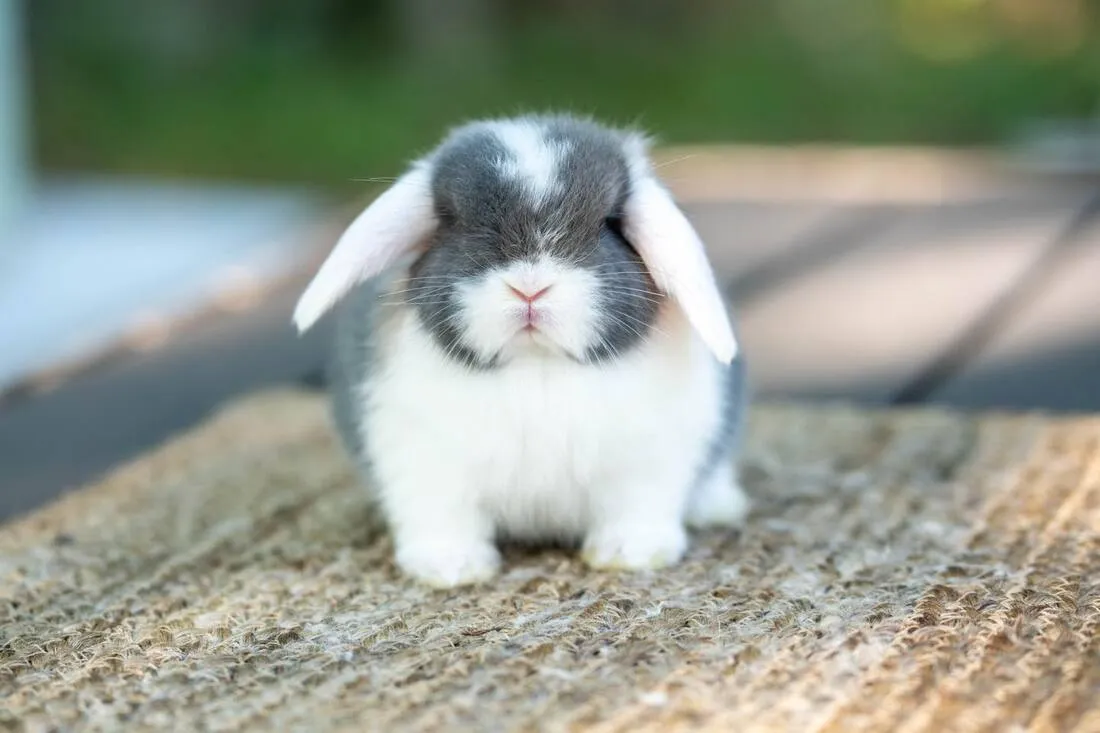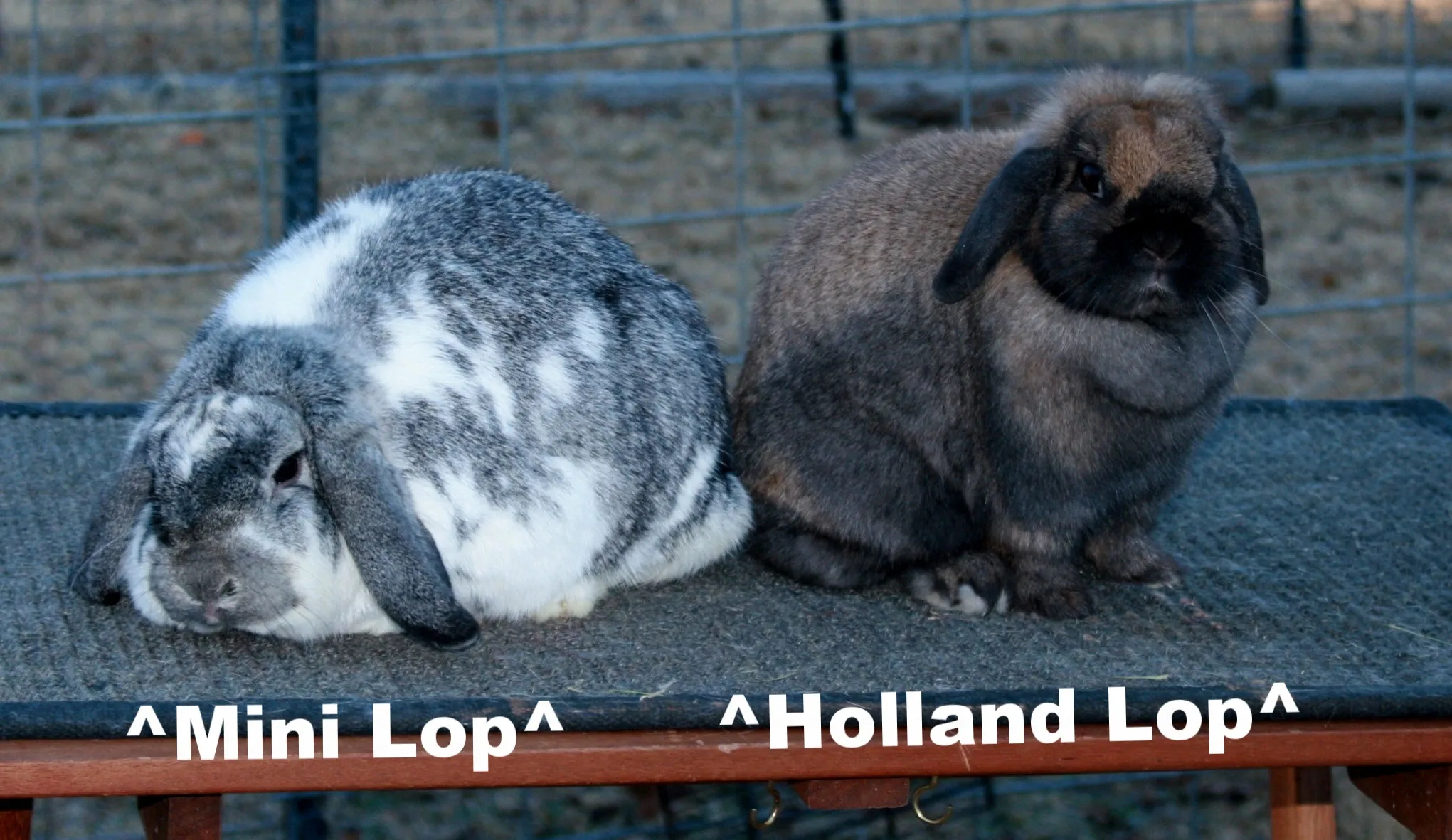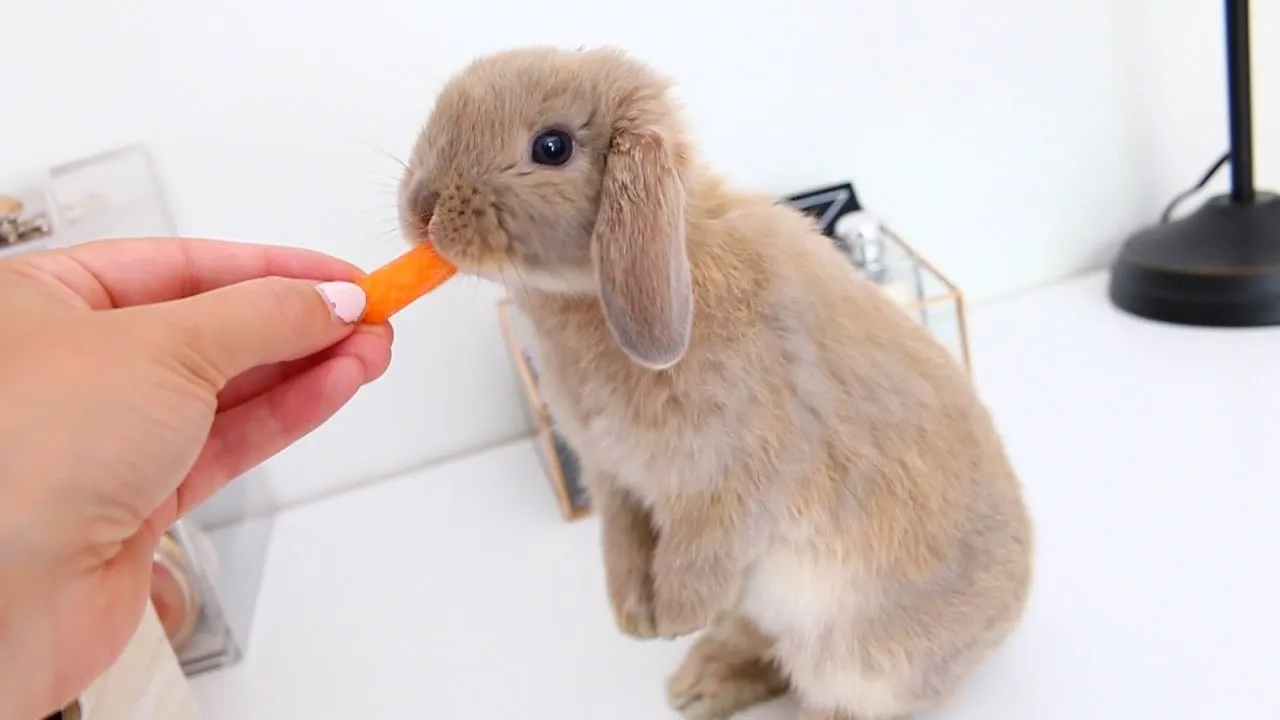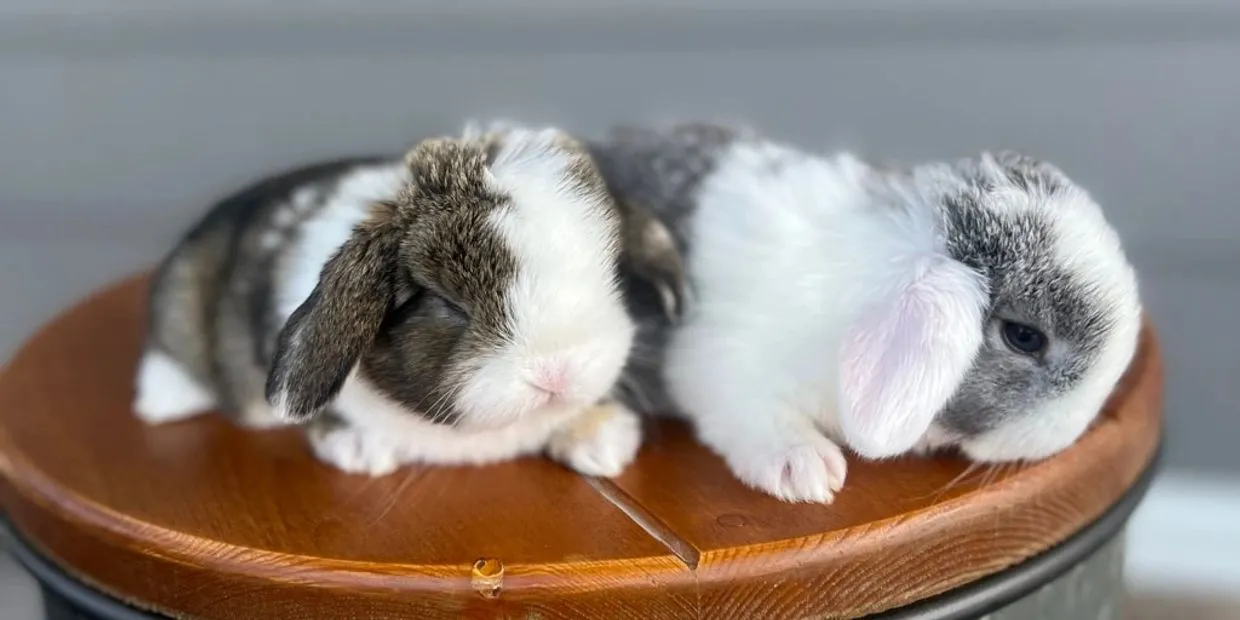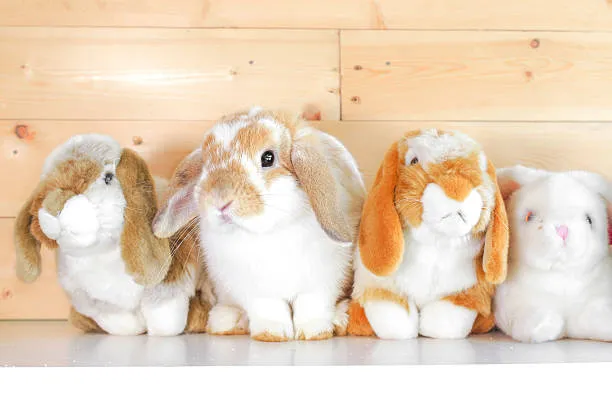Holland Lop bunnies are the world’s most beautiful and sought-after breed of rabbit. With their characteristic floppy ears, compact size, and affectionate nature, these adorable little rabbits have won themselves a position in the hearts of pet owners and breeders alike.
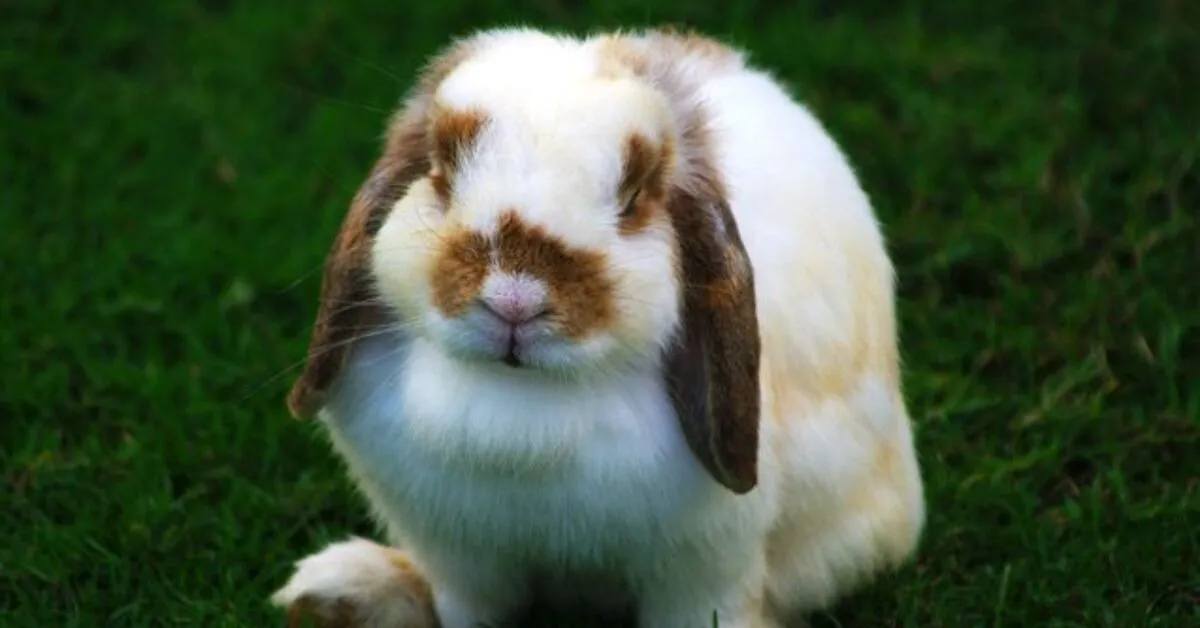
Their pleasant demeanour, low maintenance requirements, and laid-back nature make them ideal pets for singles, families, and elderly people. Holland Lops are highly social animals and can become close to individuals, hence great for a person who wants to introduce a friendly buddy into their life.
Bred originally as a miniature French Lop, Holland Lop rabbits have since become the top pet rabbit in the majority of countries.
Whether you’ve recently brought home your first rabbit or are an old hand at rabbit ownership, learning about Holland Lop bunny temperament, requirements, and behaviour will guarantee that they will lead long, healthy, happy lives.
The Origin of Holland Lop Bunnies
The Holland Lop rabbit breed originated in Holland during the 1950s, when Dutch breeder Adriann de Cock was forced to create a smaller version of the big French Lop.
In creating this, he first bred the French Lop with the tiny Netherland Dwarf, but the rabbits thus produced did not have the wanted floppy ears. English Lops were subsequently incorporated into the breeding program to obtain the correct ear type.
By several generations of judicious choice, the Holland Lop gained the dwarfed stature of the dwarf rabbit and the characteristic lopped ears of its larger ancestors.
The Holland Lop was officially recognised as a breed for the first time in Holland in 1964 and imported into the United States in the 1970s.
The Holland Lop had been recognised by the American Rabbit Breeders Association (ARBA) as a distinct breed by 1979. It has since remained one of the world’s most popular and utilised show and pet rabbit breeds.
Physical Characteristics and Breed Standards
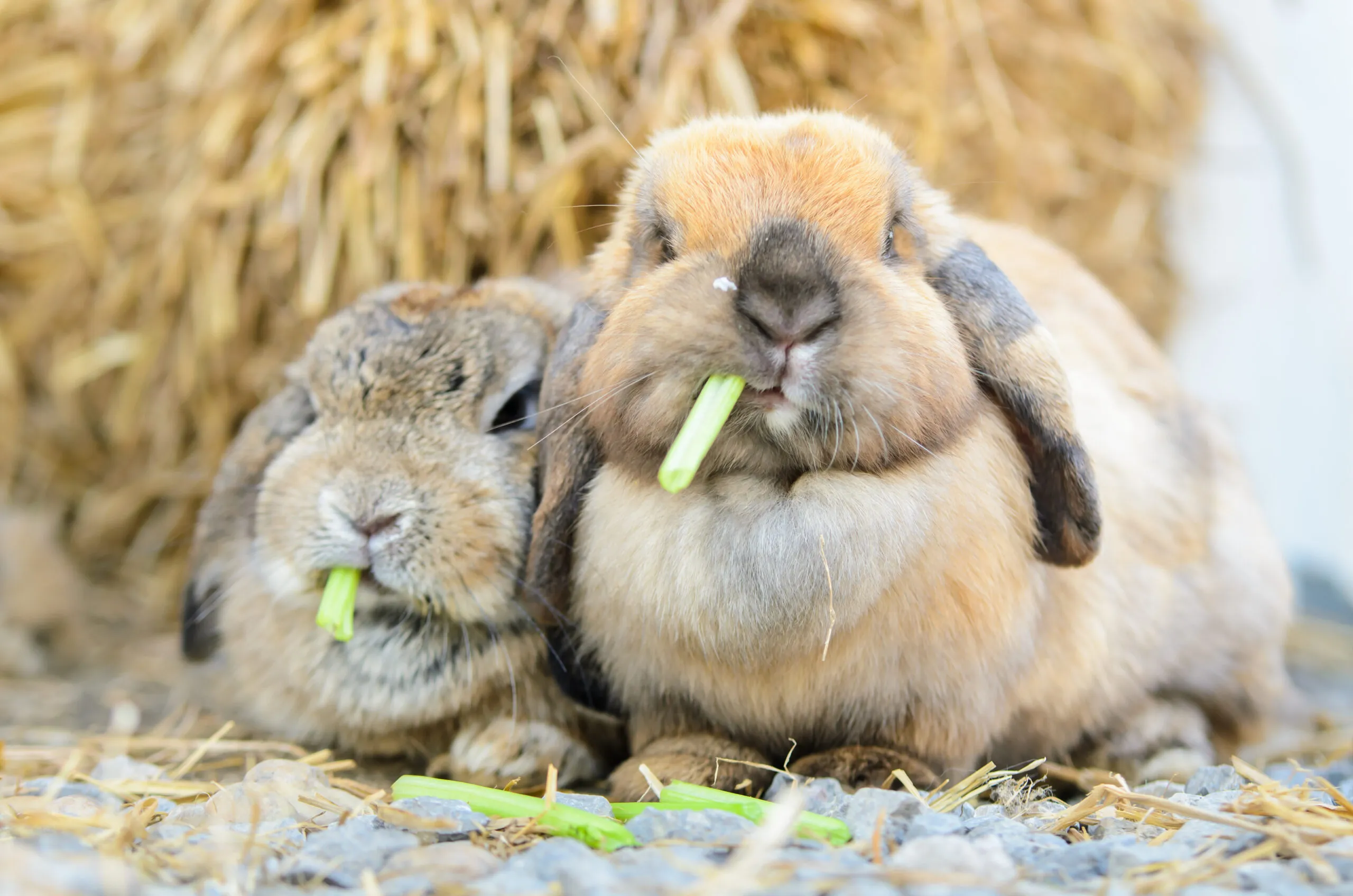
Holland Lop rabbits are a dwarf variety, i.e., much smaller than regular breeds of rabbits. They are of two to four pounds in weight and possess a solid, stout body with broad shoulders and a powerful build.
They possess a full, round head, commonly called “bulldog-like,” and set high on their shoulders, having a serious and observant appearance.
Their most visible feature is their lopped ears, which hang towards the head side of the head and not upright. Their ears are soft, fleshy, and hairy, and add to the plush, sweet look of the breed.
Unlike many other rabbit breeds, Holland Lops have the crown towards the front part of the top of the head, made of cartilage that acts to secure the ears in place.
The coat of the Holland Lop is plush, rollback in nature, with its breed reverting to normal when brushed in the opposite direction.
They have a variety of colours and patterns, including solids, broken (spotted), and shaded. Though ARBA has certain standards for showing rabbits, pet-quality Holland Lops may have minor variations that are not detrimental to their friendly nature and attractive appearance.
Personality and Temperament of Holland Lop Bunnies
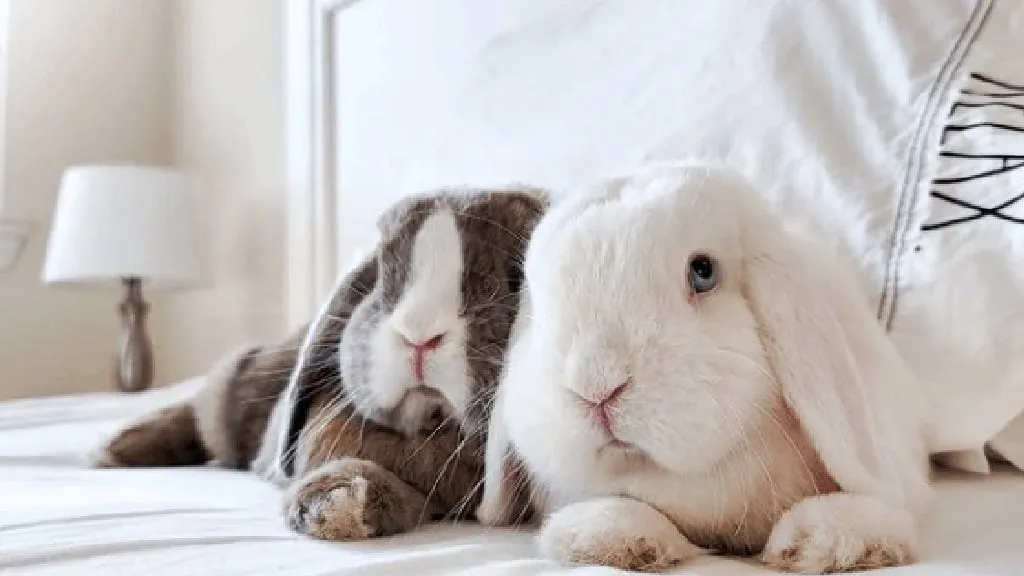
One of the best things about Holland Lop rabbits is their fantastic temperament. They are very friendly, sweet, and sociable.
They are commonly described by owners as “dog-like” since they adore following their owners around the house and being stroked and cuddled. They adore people and thrive in houses where they receive lots of attention and affection each day.
Though each bunny is unique, Holland Lops are generally laid back and quiet. They are less nervous than most breeds and are patient and tolerant, so they’re perfect for families with children.
That being said, as with all rabbits, they do respond to sudden noise and movement, so a quiet household is preferred in an effort to make them feel secure.
If socialised well as young ‘uns, Holland Lops will form strong human bonds. They are sensitive to soft touch, soft voice, and habit.
Some can be trained to be litter box users, trick performers, or even answer when called, which is a testament to how intelligent and people-savvy they are.
Nutrition and Feeding for Holland Lops
Offering your Holland Lop a good-quality, species-suited diet is perhaps the most vital thing to provide for a long and healthy life.
Hay, and in particular timothy hay, needs to be the main part of their diet and provide them with the fibre that they require to help maintain a good digestive system and to wear down the teeth. As rabbit teeth grow continuously for their entire lives, hay is necessary to avoid overgrowth and related health issues.
Raw vegetables, such as leafy greens such as romaine lettuce, parsley, and cilantro, should be offered daily to offer moisture and nutrients to the diet.
Commercial rabbit pellets can be offered in moderate amounts since they have vitamins and minerals, but lead to weight gain when taken excessively. Treat foods such as fruit and root vegetables should be offered sparingly because they have sugar.
Fresh, clean water is available at all times. Water may be dispensed in a water bottle or a spill-proof bowl. Whichever way it is presented, containers will need daily cleaning to avoid the accumulation of bacteria and keep your bunny properly hydrated.
Grooming and Hygiene Maintenance
Holland Lop rabbits are relatively low maintenance when it comes to grooming, but do need frequent grooming attention to stay healthy.
Their rollback coat is silky and should be brushed every week or every two weeks to remove stray hair and matting. Shedding season also needs more regular grooming in an attempt to reduce the risk of ingesting hair and hairballs.
These rabbits are highly hygienic and clean themselves very well by constantly grooming themselves. Bathing them, however, is not necessary and highly discouraged.
If your bunny does somehow manage to get dirty, mild spot cleaning with a damp cloth will most likely be all they need. Every three or four weeks, their nails need to be trimmed to make them comfortable and unharmed.
Their ears need special attention. The lopped appearance can be a precursor to moisture and dirt, and therefore can be a cause of ear infection if not checked periodically. They need to be cleaned lightly and only as and when necessary, and discharge or smell needs to be checked by a vet.
Socialisation and Enrichment for a Happy Life
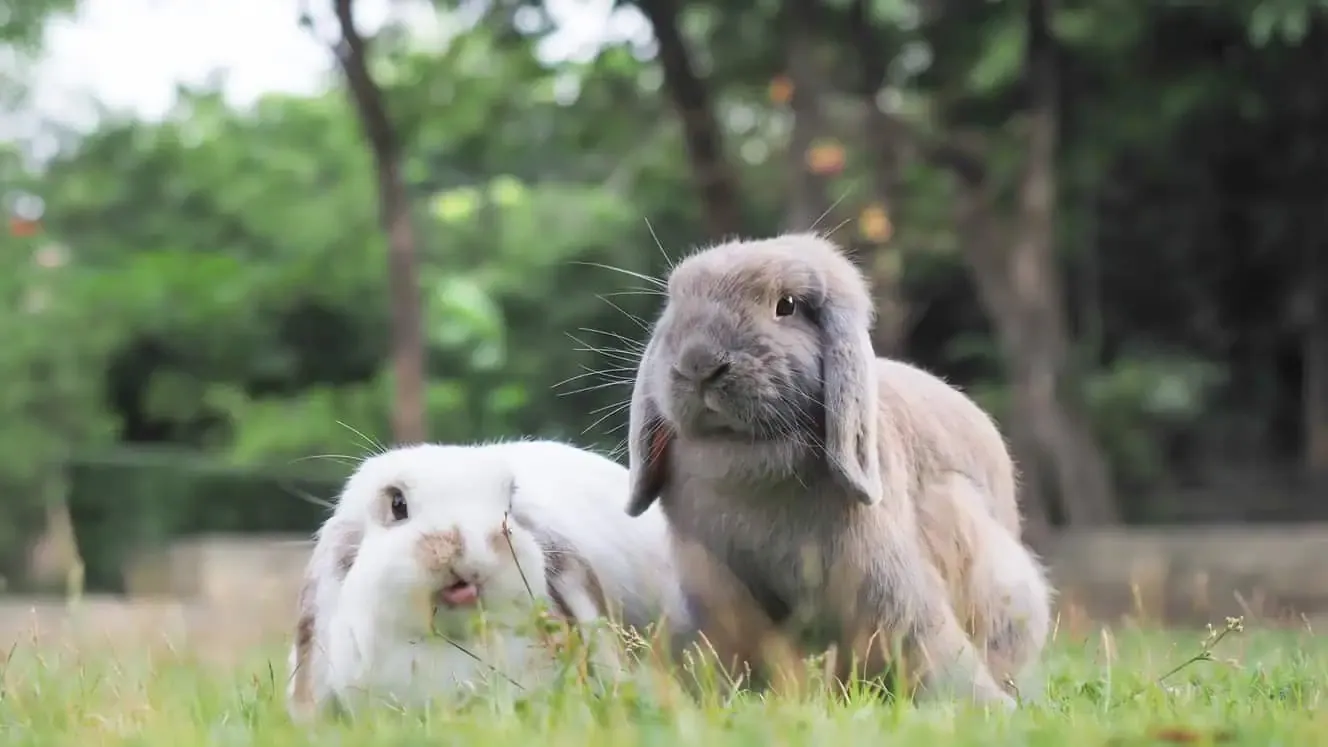
Holland Lop rabbits perform best in a setting where they are given lots of attention and interaction. Holland Lops are friendly and require mental and physical stimulation in order to be content.
Playtime daily, stroking, and being allowed to investigate new surroundings will enhance their lives and foster trust between the owner and rabbit.
Providing toys such as cardboard tunnels, untreated wood chews, and puzzle feeders will activate their natural behaviour and remove boredom.
Changing the material in their enclosure and creating new hideaways keeps them engaged with their surroundings. A happy rabbit is busier, curiouser, and cuddlier, and enrichment is at the centre of happiness.
If you will be housing more than one rabbit, the bonding must be followed with extreme caution. A new rabbit can be introduced slowly and in a neutral area to start with. Rabbits will groom, cuddle, and comfort and provide companionship to one another after bonding.
Common Health Issues and Veterinary Services
Despite being generally healthy, Holland Lop rabbits share certain common health problems that their owners need to be concerned with.
One of the most common health problems of their species is dental problems due to their short head, which could result in crowded teeth. Feeding your rabbit lots of hay and having frequent dental examinations eliminates achin,g overgrowth or abscesses.
Ear infections also need to be watched out for, especially since they have floppy ears. Regular checking and prompt detection of redness, odour, or discharge will prevent serious complications.
Gastrointestinal stasis is fatal if a rabbit’s digestive system slows or grinds to a halt. Its signs are no appetite, fewer droppings, and drowsiness. This needs to be dealt with urgently by a vet if suspected.
Spaying or neutering your bunny reduces the occurrence of reproductive cancers and aids in the control of hormonal behaviour. It also optimises the potential for successful socialisation with other bunnies.
Taking regular visits to your vet for checks, vaccinations (if your area provides them), and parasite control are essential responsibilities of a good rabbit owner.
Holland Lop Lifespan and Long-Term Care
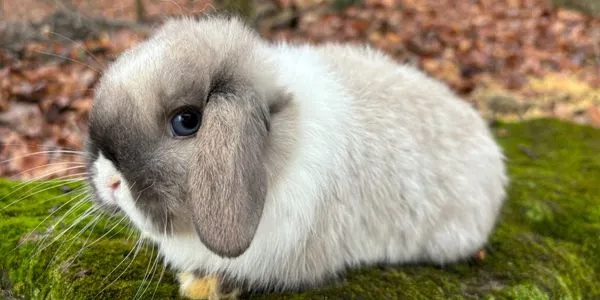
Holland Lop rabbits, with proper care, will live a typical seven to ten years, but some will live twelve and more. Diet, surroundings, medical care, moods, and genetics are all factors in deciding how long they will live.
Their owners who provide their rabbits with regular care, veterinary care, good nutrition, and interaction on a daily basis will greatly improve the life of their rabbit and have it live a full and satisfactory existence.
Senior Holland Lops will begin to lose their energy in their later years and require changes to their environment. Reducing litter boxes, the ease of softer bedding, and having food and water placed within easy reach simplify life for senior rabbits and allow them to settle easily and retain their dignity.
Keeping track of signs of ageing and modifying your care routine is a crucial aspect of caring for your bunny from start to finish.
Choosing a Holland Lop Bunny as Your Pet
If you are considering adopting a Holland Lop bunny as a pet, it is important to obtain it from a reputable source. Good rabbit rescue organisations and breeders will always prioritise the health and temperament of the animal.
Meeting the bunny in person and observing its behaviour is important to ensure that it is the right bunny for your family. Healthy signs are a clean and shiny coat, clean nostrils, bright eyes, and a bouncy attitude.
Before bringing a bunny home, make sure that you can provide the time, space, and commitment needed to keep it daily. Rabbits are not low-maintenance pets and require as much attention as a dog or cat. With patience, love, and knowledge, a Holland Lop bunny can become a dynamic family member and bring joy to your home for many years to come.

